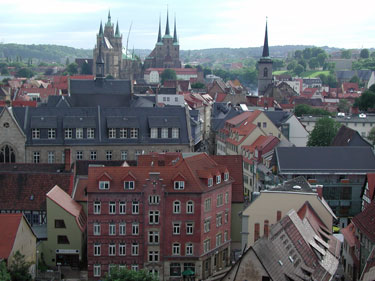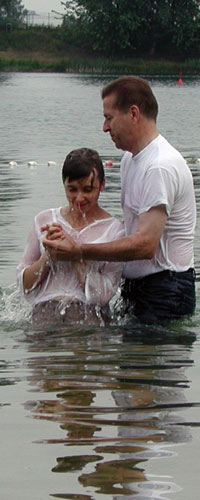 The intent of this platform is to offer missional tools and ideas for women and men who are committed to reaching the unchurched of German speaking Europe with the life changing message of the Gospel. Planting churches in Germany since 1984 has given me a first-row seat in seeing the lost surrender their lives to Christ. Since 2016, I am planting a church in Bregenz, Austria. Many writers emphasize that church planting remains the most effective method for effective evangelism, even in Post Christian Europe. The papers, articles and information provided in this platform are primarily intended to assist and help those who have a call to missional ministry in German speaking Europe who are not native to this area of the world. I trust you will be encouraged as you navigate this site and continue to follow the missional calling upon your life.
The intent of this platform is to offer missional tools and ideas for women and men who are committed to reaching the unchurched of German speaking Europe with the life changing message of the Gospel. Planting churches in Germany since 1984 has given me a first-row seat in seeing the lost surrender their lives to Christ. Since 2016, I am planting a church in Bregenz, Austria. Many writers emphasize that church planting remains the most effective method for effective evangelism, even in Post Christian Europe. The papers, articles and information provided in this platform are primarily intended to assist and help those who have a call to missional ministry in German speaking Europe who are not native to this area of the world. I trust you will be encouraged as you navigate this site and continue to follow the missional calling upon your life.
Paul Clark
For those interested in posting ideas or other articles related to the focus of this platform, please contact me at: paul.clark ( at ) bfp.de. Also I look forward to receiving any suggestion you may have.
Missionaries in German speaking Europe?
It is hard to imagine when one looks at Germany today that this is the land where the Reformation began and only 200 years later would also be the starting point for the modern missionary movement. Moravian missionaries in the 18th century sacrificially left all behind and went to the ends of the world to proclaim the good news of the Gospel.
 Today, many Evangelicals outside of German speaking Europe mistakenly assume Luther’s Reformation as something equivalent to one of the great revivals that swept through North America and England during the 18th and 19th centuries. The Reformation had immediate political ramifications for Germany speaking Europe, and it truly did bring about a revival in theology that would positively leave its mark on most of Western Europe and North America. However, masses of Germans, Swiss, and Austrians did not turn to Christ during the Reformation because these masses considered themselves already to be Christians. In other words, almost overnight, many Catholic Christians became Protestant Christians, and many Catholic Christians remained Catholic Christians. It was the local nobility who decided for those living within his jurisdiction which brand of Christianity would be allowed. Especially in some areas of Austria and Switzerland following the Reformation, the Anabaptists (Evangelicals) experienced severe persecution. Even today in many parts of German speaking Europe, Evangelicals are considered by the populations of being in a cult, since they do not belong to the state Catholic or Protestant church.
Today, many Evangelicals outside of German speaking Europe mistakenly assume Luther’s Reformation as something equivalent to one of the great revivals that swept through North America and England during the 18th and 19th centuries. The Reformation had immediate political ramifications for Germany speaking Europe, and it truly did bring about a revival in theology that would positively leave its mark on most of Western Europe and North America. However, masses of Germans, Swiss, and Austrians did not turn to Christ during the Reformation because these masses considered themselves already to be Christians. In other words, almost overnight, many Catholic Christians became Protestant Christians, and many Catholic Christians remained Catholic Christians. It was the local nobility who decided for those living within his jurisdiction which brand of Christianity would be allowed. Especially in some areas of Austria and Switzerland following the Reformation, the Anabaptists (Evangelicals) experienced severe persecution. Even today in many parts of German speaking Europe, Evangelicals are considered by the populations of being in a cult, since they do not belong to the state Catholic or Protestant church.
Survey data indicated that only about one-half of Germans believe in the existence of God. This statistic is quite remarkable when one realizes that still two-thirds of all Germans are nominal members of either the Catholic or Protestant / Lutheran church. The German newsmagazine Der Spiegel magazine best summarizes the present spiritual dilemma facing church leaders today in all denominations in German speaking Europe: “A once Christian land has now become a pagan land with a few Christian leftovers.”
Today it is estimated that somewhere between one and two percent of Germany’s eighty-two million people are Evangelical. Paul Schmidgall in his book Von Oslo to Berlin, estimates there are about 100,000 Pentecostals in Germany. Over four million Muslims, mostly from Turkey, call Germany their home. Since 2015 almost another one million muslims have come to Germany. Compared to the numerical strength of Evangelicalism and Pentecostalism in many countries in Africa, Latin America, and parts of Asia, German speaking Europe is well behind in the numbers game. A true missionary call can not preclude obeying the Great Commission even in those areas of the world that have once been considered Christian.